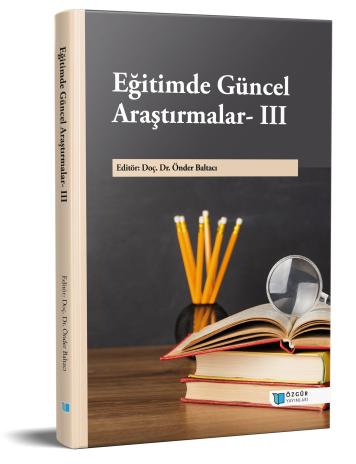
Denetimli Serbestliklerde Eğitim ve İyileştirme Çalışmalarında Motivasyonel Görüşmenin Kullanımı
Şu kitabın bölümü:
Baltacı,
Ö.
(ed.)
2023.
Eğitimde Güncel Araştırmalar- III.
Özet
Çağdaş ceza sisteminde hapis cezaları suçlu davranışların azalması ve suçun tekrarının önlenmesi açısından yetersiz kalabilmektedir. Buna göre denetimli serbestlik sistemi ceza sisteminde suç işlemiş bireylerin topluma adaptasyonu, rehabilitasyonu ve tekrar suç işlenmesinin önlenmesi açısından alternatif bir sistem olarak kurulmuştur. Ancak denetimli serbestlik sisteminde yükümlüler denetim planlarında belirlenen çalışmalarına gönülsüz ve dirençli bir şekilde katılabilmektedirler. İyileştirme çalışmalarında direnç, zaman zaman zorlayıcı olabilmekte ve çalışmaların etkililik oranını düşürebilmektedir. Motivasyonel görüşme iyileştirme çalışmalarında karşılaşılan dirençle baş etme yöntemlerinden biri kabul edilmektedir. Motivasyonel görüşme ilk olarak madde bağımlılığı alanında kullanılmaya başlanmış sonrasında kapsamı genişletilmiştir. Motivasyonel görüşme denetimli serbestlik yükümlülerinin madde bırakmaya hazır oluş düzeylerinin ve sorumluluk düzeylerinin artması ile motivasyonlarının yükselmesi üzerine olumlu katkılar sunmaktadır. Ayrıca motivasyonel görüşme sayesinde madde kullanımına dönüşlerin azaldığını gösteren çalışmalar da mevcuttur. Bu bağlamda denetimli serbestlik sisteminde yürütülen bireysel görüşme ile grup çalışmalarında motivasyonel görüşmenin kullanılmasının direnci azaltması, yükümlülerin isteklerinin artması, madde kullanımına dönüşlerin azalması ve suçun önlenmesi konusunda katkı sağlayacağı söylenebilir. Mevcut çalışmaya göre denetimli serbestlik uzmanlarına motivasyonel görüşme teknikleri eğitimleri verilmesi ve iyileştirme çalışmalarının bu kapsamda çeşitlendirilmesi önerilmektedir.

